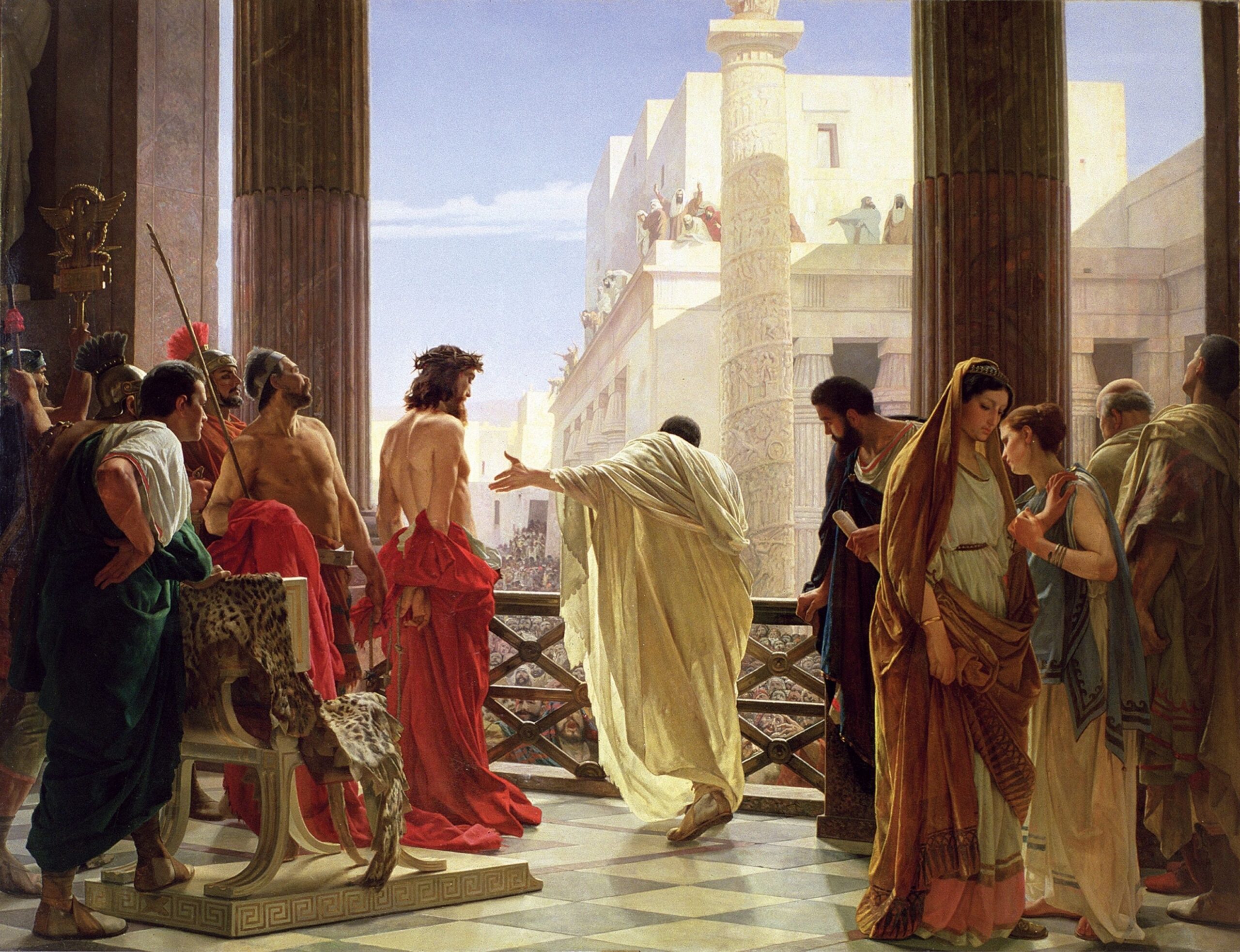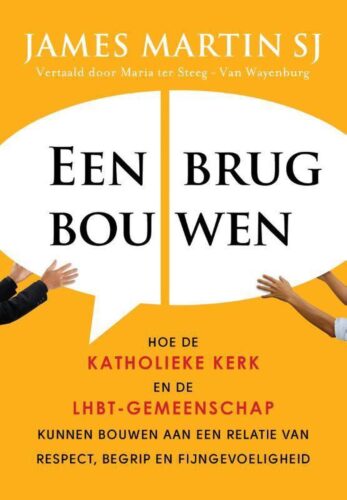In an interview this month, Cardinal-designate Víctor Manuel Fernández, the soon-to-be prefect of the Dicastery for the Doctrine of the Faith, said, “Without an experience of the living Christ who loves and saves, we cannot shape our ‘being Christian’, and concentrating on arguing and debating with everyone will not help mature this development in people.”
After reading this, and considering my humble contribution to Outreach, I wanted to unpack the meaning of “being Christian.” To Catholics within the LGBTQ community, I wish to reaffirm your sacred identity. You are Christian—not just in name, but in fact.
This “being Christian” begins with the Spirit of God, who has been poured out on you through faith and baptism. You have been configured to Christ and branded as Christian, even though some would like to re-brand you and consider you as objects to be discarded, rather than as beloved communal members of the Body of Christ.
To Catholics within the LGBTQ community, I wish to reaffirm your sacred identity. You are Christian—not just in name, but in fact.
I have always been moved by the philosophy of Gabriel Marcel (1889-1973), who focused on the nature of being as he pondered the world of the person. He described our common challenge of communion with others, and ultimately, with God.
Born in Paris, Marcel was a philosopher, playwright and musician. Considered a Christian existentialist, although he rebuffed such a title, he coined the phrase, “Esse est co-esse!” (“To be is to be with!”).
Standing squarely against the philosophies of despair and anxiety promoted by some of his atheistic contemporaries, philosophies adopted even today by many within our own faith, Marcel proposed the alternative virtues of hope and thanksgiving, with communion as both their end and support.
Marcel’s own hope and thanksgiving was born out of his relational/communal understanding that God finds hope in us first, and delights in us with thanksgiving. Firmly, he prayed, “I hope in Thee for us.”
I wonder how many within the LGBTQ community find such hope within the life of our church. If you feel re-branded by those who stand against you, are you able to find within yourself the benchmark of hope that begins with God, who has great hope for you? I believe that every Christian, before asking the Lord for an increase in the virtues of faith, hope and love, should ask God, “Do you have faith in me? Do you have hope for me? Do you love me?” If you let the Lord answer you in the affirmative, then you’ll know who you are: a beloved child of God in Christ.
Marcel’s communal sense of “being” included an understanding that life and being is a mystery, not a problem or puzzle to be solved. Treating God, self or the other objectively (versus communally) is to walk away from our very essence.
When people re-brand Catholics in the LGBTQ community as sinners … they have not only ruptured the “being” of the other, but even their own Christian selves.
When people re-brand Catholics in the LGBTQ community as sinners, intrinsically disordered or as persons inclined to disorder, while forgetting that they are Christian, they have not only ruptured the “being” of the other, but even their own Christian selves.
I have come to believe that rupturing our “being Christian” is the source of sin and disorder. We certainly understand that life is chaotic and disordered. Even our age-old Catholic teaching regarding concupiscence acknowledges this fundamental theological construct that, due to original sin, our essential goodness has been disordered and we are each inclined to sin.
In both in Hebrew (châṭâ’) and Greek (hamartanō), sin is identified as “missing the mark.” Of course, this begs two questions. If sin is missing the mark, then what is the mark? If original sin is missing the original mark, then what is the original mark?
Returning to Marcel’s “to be is to be with,” we can see that sin is truly a rupture of being. I miss the mark when I treat myself, God or another as an object or puzzle. This is our universal disorder and, if I may, intrinsic disorder. Even our concupiscent inclination to miss the mark is a byproduct of our disordered selves.
In a recent article for America, I argued that “relying on our theological and moral constructs of concupiscence and levels of culpability, [we] should begin with the premise that we are all disordered to some degree: theologically, socially, physically, sexually, etc. No one is exempt from disorder.”
I contend, along with Marcel, that the rupture of our being is the source of this disorder. Pointing to the Prologue of the Gospel of John, Marcel argues that “in the beginning, there was the Word, and the Word was with God and the Word was God.” Therefore, we must conclude that to be made in God’s image means that “to be is to be with.” Anything less misses the mark.
The remedy for this, of course, is Emmanuel, which means “God with us.” Christ Emmanuel was born with us, suffered with us, died with us and breathed upon us his life-giving Spirit. He graced us with his divine withness so that we might rise with him. This restoration and redemptive gift should be the “mark” we must hit and embrace.
The only way to hit the mark is to welcome and be welcomed by Christ himself. He is the way, the truth and the life.
Whenever people say that we must defend the deposit of faith, I wish to remind them that the truth is Christ.
Whenever people say that we must defend the deposit of faith, I wish to remind them that the truth is Christ. Faith (fides) is Christ, who is with us. He is with us not just remotely, but imminently, intimately and sacramentally.
We can often be like Pontius Pilate asking “What is truth?” while missing that the fundamental truth—Christ Emmanuel—is staring us straight on (Jn. 18:38). The worn-out and tortured Christ standing before Pilate, or the objectified and disenfranchised members of the Body of Christ standing before an accusatory lot, is the same truth hiding in plain sight.
When, in our attempt to define or defend truth, we fail to ask the question, “Who is truth among us?” we treat the other as a puzzle and not as a mystery to celebrate.
Our deepest sin, our original sin, misses the mark when we fail to celebrate our sense of being. Cardinal-designate Fernández is correct. We must indeed experience and celebrate the mystery of the living Christ, who is with us to shape our “being Christian.”



